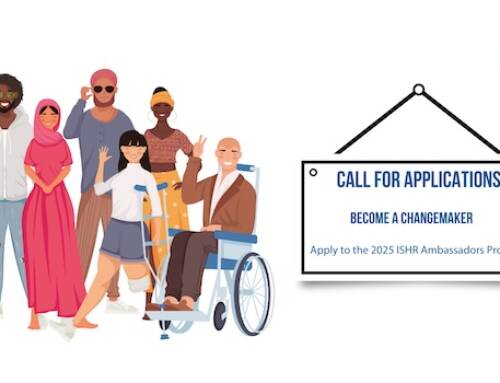GLOBAL


Brief on the Importance of Advocating for Social Economic Rights in Developing Countries
Introduction
Socioeconomic rights are human rights focused on the economic and social well-being of people. They include access to necessities like food, education, and health care. These rights aim to ensure a dignified life and are protected by international agreements like the International Convention on Economic Social and Cultural Rights. Governments have an obligation to progressively work to fulfill these rights.[1] However, challenges in implementation persist, affecting global efforts to combat poverty and inequality, especially in developing countries.
Socioeconomic rights often receive less attention from human rights advocates and organizations, overshadowed by civil and political rights. While both sets of rights are crucial, socioeconomic rights, addressing issues like education, health, and housing, are sometimes sidelined by governments. This can result in unequal access to essential services, perpetuating poverty and inequality. To achieve comprehensive human rights protection, it is essential to advocate for and address both civil-political and socio-economic rights.
Major challenges in realizing socio-economic rights in developing countries include corruption, where public funds intended for social programs are embezzled, hindering their effective implementation. Additionally, multinational companies often repatriate wealth, depriving local economies of resources needed to fund social services. Another issue is the lack of technical capacity in fiscal policy development, making it difficult for governments in developing countries to allocate resources effectively. These challenges collectively impede the equitable and sustainable fulfillment of socioeconomic rights, perpetuating inequality and hindering social progress.
Observation
One of the biggest challenges facing the realization of social economic rights that Human rights defenders ought to fight is Corruption. Corruption in Africa is a significant impediment to the realization of socioeconomic rights. It leads to an unjust distribution of wealth and resources, concentrating them in the hands of a few while depriving many of their basic needs. It also hampers efficient service delivery, diverting funds intended for essential services like healthcare and education. These detrimental effects exacerbate poverty and inequality, hindering progress toward ensuring that all citizens enjoy their socio-economic rights.[2]
Secondly, In many African countries, poor financial planning, inadequate taxation systems, and skewed spending priorities significantly hinder the realization of socioeconomic rights. Insufficient tax revenue collection, often due to tax evasion and inefficient tax systems, limits government resources for essential services. Moreover, misaligned spending priorities, such as excessive salaries for the political elite over social programs, divert funds from crucial areas like education and healthcare. These challenges increase the struggle to meet basic needs as well as inequalities, further impeding the fulfillment of socioeconomic rights for many citizens.[3]
A lesser-known challenge to the realization of social economic rights is the expatriation of wealth by multinational companies which often poses a more significant drain on developed countries’ resources than conventional forms of corruption. These corporations frequently choose not to establish processing factories in Africa, opting to manufacture goods in their home countries and then import them into Africa at inflated costs. This practice exacerbates economic disparities, as it limits local job creation and perpetuates a reliance on expensive imported goods, particularly affecting African economies.
Recommendations
Advocates for socioeconomic rights and organizations all over the world need to make deliberate efforts to train and build the capacity of governments in developing countries. This entails workshops on financial planning, efficient taxation systems, and prioritizing budgets to allocate resources effectively for public services. Additionally, mechanisms for monitoring and evaluating government spending should be developed to ensure alignment with socioeconomic rights goals. Such efforts can empower governments to better plan and allocate resources for the well-being of their citizens, ultimately advancing the realization of socioeconomic rights.
Conclusion
Socioeconomic rights are essential for human dignity and well-being. Advocating for better financial planning, tackling corruption, and speaking against wealth expatriation are crucial steps in ensuring that these rights are upheld within developing countries because those countries will then be able to effectively utilize their resources to realize social and economic rights. promoting equality, and advancing the collective goal of a fair and just society.
Jamada Kalinda
ISHR Ambassador Uganda
Footnotes
[1] CESCR General Comment No. 3: The Nature of States Parties Obligations (Art. 2, Para. 1, of the Covenant)Adopted at the Fifth Session of the Committee on Economic, Social and Cultural Rights, on 14 December 1990 (Contained in Document E/1991/23)
[2] General comment No. 24 (2017) on State obligations under the International Covenant on Economic, Social and Cultural Rights in the context of business activities
[3] Waris, A. (2015). Tax incentives and human rights in developing countries. Journal of Human Rights and International Affairs, 1(1), 1–15.





